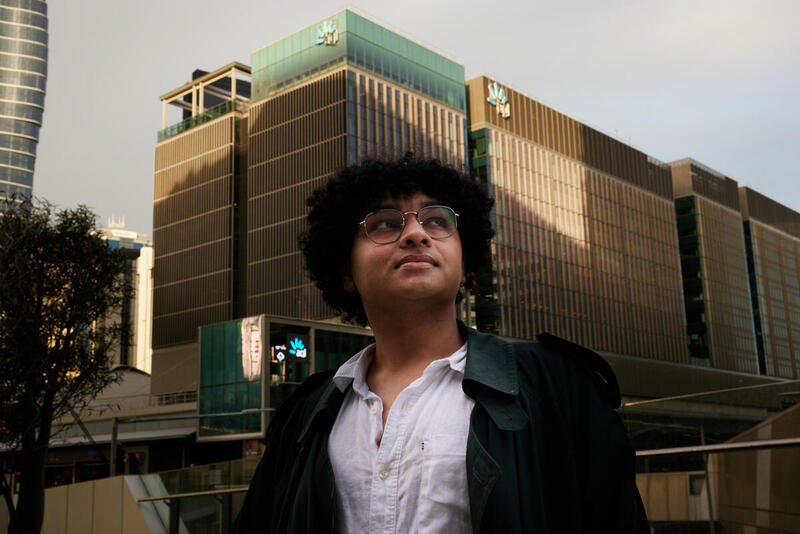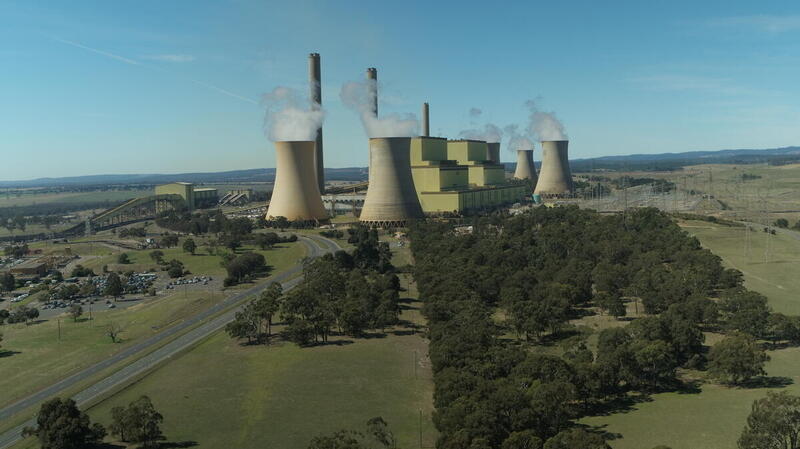A Teen Climate Activist Is Fighting To Join Australia’s Biggest Corporate Climate Polluter
September 14, 2021In an unconventional, likely unprecedented, maneuver of climate activism, one Australian teen is standing up to the country’s coal giant by running for a leadership position at the corporation. Since August, 18-year-old Ashjayeen Sharif has been campaigning hard to get elected to the board of directors at AGL, a major Australian energy company heavily reliant on fossil fuel.
Earlier this year, AGL was identified by Greenpeace as Australia’s biggest climate polluter after emitting 42.2 million tonnes of carbon between 2019 and 2020.
“This is a time where AGL’s leaders need to be leaders, and they clearly aren't going to do it. So someone else has to do it. And that's going to be me,” the young climate activist told VICE World News.

In an open letter to AGL and its shareholders, Sharif criticized AGL’s leadership for disregarding climate science and not adapting to the market.
“If they won’t see sense, a first-year university student like me can do a better job,” the letter reads. “Because it’s my future that’s at stake, and that of your children.”
Born in Bangladesh, Sharif migrated to Australia with his family in 2004. His background as a young immigrant has made him acutely aware of the fact that climate change affects communities in disproportionate ways—especially its extreme impact in South Asia.
He began his journey in climate activism in late 2018 after being inspired by School Strike for Climate, the international movement where school students would skip school on Fridays to demand greater climate action.
Three years later, the first-year university student in Melbourne has become a prominent face in corporate climate activism.
According to Sharif, climate action is an “obviously sensible” thing to do when it comes to corporations as large and pollutive as AGL. While AGL’s sluggish coal phase-out amps up climate anxiety among young people like himself, Sharif decided to take matters into his own hands.
“It’s seeing that AGL has such a big role in Australia's transition to renewables, seeing that their current leadership is horrible, and seeing that something needs to be done, which led me to think, ‘Hey, I could be one of their leaders. Let's run for that board and force them to take action,’” he said.
Sharif credited the Class Action 4 Climate campaign as a major inspiration for his campaign. Last year, a group of teenagers launched a class-action lawsuit seeking an injunction against government approval of coal mining projects—they claimed that the environment minister has a legal duty to not harm young people with the exacerbation of climate change. In May, the Australian Federal Court ruled in favor of the teenagers, setting a legal precedent in Australia.
If elected to AGL’s board of directors, Sharif plans to push relentlessly for the closure of the company’s coal power stations while transitioning to renewable energy facilities.
“I say relentlessly, because I know there will be opposition from the other board members, but they're gonna have to listen to me if I'm on the same level as them,” he said.
Sharif knows it won’t be easy. He faces an uphill battle not just in regards to making it on the board, but against AGL’s board members if he does make it.
In an AGL document introducing Sharif’s campaign to shareholders, it is explained that professional search firms are usually engaged to source candidates that can complement the existing directors.
“The Board considers that Ashjayeen Sharif’s skill set and experience would not add to the effectiveness of the Board,” the notice reads. “The Directors unanimously recommend that shareholders vote against this resolution to elect Ashjayeen Sharif to the Board.”
While Sharif grapples with opposition, he has also seen support pour in from unexpected facets—some shareholders have reached out with words of encouragement, viewing his campaign as an opportunity to force AGL to improve. Environmental group Greenpeace is also backing his campaign.
“It's the first time a climate activist has directly run for a leadership position with a fossil fuel company, and to have a young person leading the charge in this new frontier for climate campaigning shows how the next generation of activists is stepping up the fight,” Glenn Walker, senior campaigner at Greenpeace Australia Pacific, told VICE World News.
On Sept. 22, Sharif will be delivering a speech at AGL’s Annual General Meeting as a self-nominated candidate in hopes of being elected to the board of directors.
Meanwhile, a petition to support his election has garnered over 17,000 signatures.
The coal giant has seen its profits plunge against an influx of renewable energy in the market. In August, AGL announced a AU$2.06 billion ($1.52 billion) loss in the last financial year amid a sharp drop in power prices.
“AGL's profits are in freefall because its coal power can't compete with cleaner, cheaper renewables,” said Walker, adding that Sharif’s mission to get AGL replacing coal with renewables by 2030 isn’t just good for the climate, but AGL itself.

As part of AGL’s plan to phase out coal power, its last coal site is only scheduled to shut down in 2048, almost two decades later than the IPCC-recommended 2030 deadline for OECD countries including Australia.
Despite being hardest hit by the climate crisis, Australia continues to hold one of the highest per capita carbon emissions in the world. Its climate policies trail notoriously behind global counterparts—in a recent U.N. report on sustainable development goals, Australia was ranked last among developed nations on climate action.
Sharif knows that his campaign is much larger than just AGL, and himself.
“AGL doesn't just have an influence in Australia, but AGL actions have a global impact, because everyone is affected by the climate crisis. We could be seeing, hopefully, AGL taking the steps to becoming a sustainable company, and protecting Australia's climate future,” he said.
“Whilst addressing the climate crisis in an Australian context can mean fighting for our futures, for a lot of people—millions, billions around the world—it is literally fighting for survival right now.”
Crucially, Sharif said that climate action is no longer something that can wait. This is why young people like himself, he said, who stand to be among those most affected, are stepping up.
“I think the biggest thing is addressing the key players directly,” said Sharif. “You know, going right up to them… and telling them that, ‘Hey, young people are here. We're rising, we need you to do what needs to be done. We need you to take climate action right now, or else we're going to kick you out, and we're going to do it instead.”
